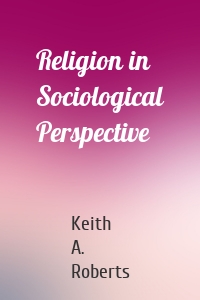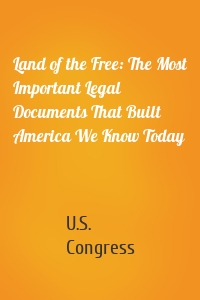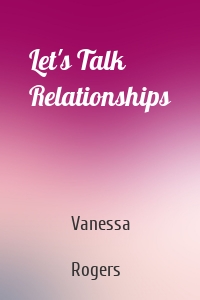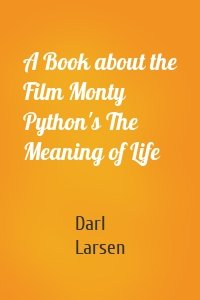Социология
5875 кн.
Palenque (Colombia)
En Colombia tenemos el privilegio de consolidar creativos proyectos interinstitucionales con cierta periodicidad. Esta nueva obra editada por la Pontificia Universidad Javeriana y el Instituto Caro y Cuervo recoge aportes de diversas latitudes y promete ser, en su área, un presupuesto insalvable. Palenque (Colombia): oralidad, identidad y resistencia, editada por Graciela Maglia y Armin Schwegler, incluye experiencias académicas y contextos sociales que testimonian el esfuerzo continuo de los...
| Автор | Группа авторов |
Medical Marijuana 101
All of our lives we have heard marijuana is bad for us, the first step to drug addiction and life as a slacker, but it just isn't true! Over the last 75 years the Federal government has done its best to discredit a natural medicine that has been used around the world for centuries. In 2009, the American Medical Association officially endorsed the medical value of cannabis and 14 states have legalized medical use with more legislation pending.Medical Marijuana 101 is a concise, accurate, and...
| Автор | Ed Rosenthal |
Garantía de no repetición
Desterrar para siempre el fantasma del siniestro e inhumano fenómeno de las ejecuciones extrajudiciales es uno de los mayores desafíos que el Ejército Nacional tiene en este momento. Por siglos esa institución ha sido la depositaria de la más genuina confianza pública y ahora, más que nunca, debe legitimar el papel custodio de las organizaciones que han dado lugar al Estado Social de derecho del país. Cumplir con eficacia esta tarea honradndo la dignidad de sus miembros y el carácter republicano...
| Автор | Gerardo Barbosa Castillo |
Land of the Free: The Most Importan...
"Land of the Free" is a meticulously edited collection of U.S. Government legal documents that shaped and built the American democracy. From the Declaration of Independence to the Civil Rights Act of 1968, this collection contains 40 most important acts and decisions which forged the legal system and democratic principles of USA: Declaration of Independence (1776) U.S. Constitution (1787) Bill of Rights (1791) Amendments (1792-1991) The Federalist Papers (1787-1788) Marbury v. Madison...
| Автор | U.S. Congress |
Sekty i narcyzyści
Nowe wydanie pierwszego dziea Fabiana Nowakowskiego, wydane w 2018 roku. Autor opisuje swoje spotkanie z narsizmem, który wczy go do sekty. Po praniu mózgu i odizolowaniu jego otoczenia rozpocza si desperacka walka o przetrwanie.Czytelnik jest wiadkiem transformacji, która szuka siebie. «Zama zasady, zanim oni zami ciebie» «Walcz o swoje ycie» s te wiadomoci pierwszej ksiki Trylogii Ustawionego Umysu, która jest ujawniona czytelnikowi strona po stronie. Autor szczegóowo opisuje, w jakim stopniu...
| Автор | Fabian Nowakowski |
Hexen
Die Hexenverfolgungen waren ein Krieg gegen Frauen, dessen Auswirkungen bis heute spürbar sind. Frauen, die unabhängig lebten, keine Kinder hatten oder einfach alt geworden waren, liefen zur Zeit der Renaissance Gefahr, verfolgt und verbrannt zu werden. Unser Bild von Frauen ist noch heute von negativen Stereotypen geprägt – entstanden in einer Geschichte, die ohne und gegen sie geschrieben wurde. Mona Chollet macht die Hexerei zu einer großen feministischen Metapher und die Hexe zu einem...
| Автор | Mona Chollet |
Von Wegen
Nach dem Erfolg von «Gentrifidingsbums» das neue Standardwerk zur Debatte! Ja, Sie lesen richtig: Es gibt eine Alternative zum urbanen Kapitalismus, die mit Mietenwahnsinn, prekären Dienstleistungen und Gated Communities brechen kann. Experimente dazu laufen allerorten. Der Weg zu dieser Utopie erfordert List und Entschlossenheit. Aber das Ziel lohnt: die freie Stadt der Zukunft, der Ort, an dem die Menschen gemeinsam ihre Angelegenheiten selbst in die Hand nehmen. Die Zukunft des...
| Автор | Niels Boeing |
Die Vagina-Monologe
Das Buch ist eine kleine, kunstfertige Anregung zur weiblichen Selbsterkenntnis, eine liebevolle Aufforderung an alle Frauen, den eigenen Weg zur Lust zu finden. Gleichzeitig ist es ein entschiedenes Plädoyer gegen sexuelle Gewalt. Alte Damen und Mädchen, Singles, Ehefrauen, Lesben, Professorinnen, Arbeiterinnen, Schauspielerinnen, Prostituierte wurden von der Auto-rin zu ihrer Vagina befragt. Ihre unterschiedlichen Erfahrungen und Ausdrucksweisen geben dem Buch eine lebendige Vielfältigkeit....
| Автор | Eve Ensler |
Crunch Time
In Crunch Time, Aliya Hamid Rao gets up close and personal with college-educated, unemployed men, women, and spouses to explain how comparable men and women have starkly different experiences of unemployment. Traditionally gendered understandings of work—that it’s a requirement for men and optional for women—loom large in this process, even for marriages that had been not organized in gender-traditional ways. These beliefs serve to make men’s...
| Автор | Aliya Hamid Rao |
Digital Delta
"On the cover there is a subtle mixture of warm and cold colors. On the face of the humanoid figure there are warm tones and cold tones on one side that spread throughout his body and his aura. The coldness of the machines and the digital mix with the warmth of life and the human. And the simultaneity of these characteristics that belong to us, defines us. We are human in a paradoxical route: we live emotional relationships with immaterial information coming from digital media. This reality...
| Автор | Herlander Elias |
La grieta desnuda. El macrismo y su...
La grieta desnuda explora el fondo de olla de una Argentina tan subejecutada como saturada de interpretaciones. Es un libro sobre la época, sus puntos ciegos y sus crujidos. Y sobre las obsesiones de los autores: el macrismo y la Historia con mayúscula, el Estado y la clase media, la desigualdad y la crisis, Cristina y el peronismo… Para escribir este libro, Martín Rodríguez y Pablo Touzon apelaron a sus mejores armas –la mirada sagaz sobre la coyuntura, la buena prosa y el diálogo entre amigos–...
| Автор | Martín Rodriguez |

























